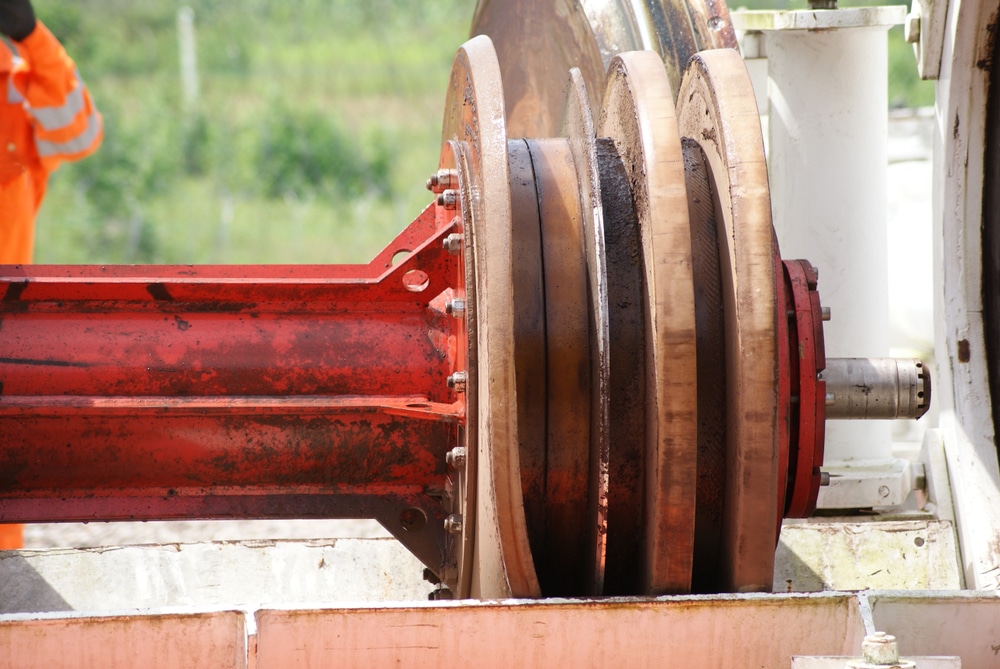The oil and gas industry relies heavily on pipelines to transport products safely and efficiently. However, over time, pipelines can accumulate debris, corrosion, and blockages that compromise their integrity. Enter pipeline pigging—a crucial maintenance process that ensures pipelines remain clean, safe, and operational. In this guide, we’ll break down the essentials of pipeline cleaning and how pigging plays a pivotal role.

What Is Pipeline Pigging?
Pipeline pigging is a maintenance technique that involves inserting a “pig” into a pipeline to clean its interior. The pig is propelled through the pipeline, typically by the flow of the transported product, scraping away debris, sludge, and other unwanted materials. This process improves efficiency and helps prevent costly damages caused by blockages and corrosion.
Sun Pipeline Solutions has been a trusted partner in the industry for over two decades for companies seeking reliable pipeline-pigging solutions. They offer a wide range of specialized pigs to meet diverse pipeline needs.
The Importance of Pipeline Cleaning
Maintaining clean pipelines is vital for several reasons:
- Improved Flow Efficiency: Debris and buildup inside pipelines can restrict flow, leading to increased pressure and reduced efficiency. Regular pigging ensures smooth operation.
- Corrosion Prevention: Moisture and contaminants can cause internal corrosion. Pigging removes these elements, extending the lifespan of the pipeline.
- Inspection Readiness: Clean pipelines are more straightforward to inspect for damage or wear. Many pigging tools can also carry inspection equipment, allowing operators to identify potential issues early.
- Regulatory Compliance: Many industries require regular maintenance and inspection of pipelines to meet safety standards. Pigging helps companies stay compliant.
If your operations involve liquid, gas, or multi-phase pipelines, exploring Sun Pipeline Solutions’ pigging products is a wise choice to ensure optimal pipeline health.
Types of Pipeline Pigs
Pipeline pigs come in various types, each designed for specific purposes. Some of the most popular options include:
Tuff Cast Pig
A versatile and durable choice, the Tuff Cast Pig excels at cleaning pipelines of different materials and sizes. It removes debris, scale, and wax buildup while preparing pipelines for inspection.
Super Flex Pig
Designed for pipelines with tight bends and diameter changes, the Super Flex Pig is a flexible solution that easily navigates complex pipelines.
Super Cast Pig
The SuperCast Pig offers a durable and long-lasting alternative to traditional foam pigs. It offers a solid-cast urethane construction in either cup or disc configuration ideal for dewatering and routine maintenance.
Super Pig
The Super Pig was the first ever all-urethane pig with interchangeable components. Perfect for any situation from removing paraffin and heavy debris to dewatering. To this day the Super Pig is the most versatile with limitless configuration options.
Steel Mandrel Pig
Built for durability the Steel Mandrel collection offers numerous configurations with the addition of various cups, discs, brushes, magnets, and transmitters. Handling any debris situation the Steel Mandrel collection is made for tough jobs.
For more details about these products and their applications, check out Sun Pipeline Solutions for tailored recommendations.
The Pigging Process: How It Works
- Preparation: The pig is selected based on the pipeline’s size, material, and the type of cleaning required.
- Insertion: The pig is inserted into the pipeline via a launcher, a specialized section of the pipeline designed for this purpose.
- Propulsion: The product flow or external pressure pushes the pig through the pipeline.
- Cleaning: As the pig travels, its brushes, discs, or cups scrape the interior walls, removing buildup and contaminants.
- Recovery: The pig exits the pipeline through a receiver, which can be inspected, cleaned, and reused.
Why Choose Sun Pipeline Solutions?
When it comes to maintaining pipeline health, partnering with a trusted provider is essential. Sun Pipeline Solutions stands out for its expertise, quality products, and commitment to customer satisfaction. Here’s why they are a go-to choice for pipeline operators:
- Diverse Product Range: Sun Pipeline Solutions offers solutions for every need, from flexible pigs for complex pipelines to heavy-duty options for challenging tasks.
- Customization: They understand that no two pipelines are alike, so they tailor their products to meet specific client requirements.
- Proven Experience: With over 20 years in the industry, Sun Pipeline Solutions has earned a reputation for reliability and innovation.
- Regulatory Compliance: Their products and services adhere to industry standards, ensuring safety and efficiency.
Learn more about how Sun Pipeline Solutions can help streamline your pipeline maintenance efforts.
Final Thoughts
Pipeline cleaning is critical to maintaining the safety and efficiency of oil and gas operations. By utilizing advanced pigging techniques, companies can prevent costly damages, ensure compliance, and extend the lifespan of their pipelines.
Whether you’re dealing with liquid, gas, or multi-phase pipelines, choosing the right pigging tools is essential. With their extensive product range and industry expertise, Sun Pipeline Solutions is your trusted partner for keeping your pipelines clear and operational.
Visit Sun Pipeline Solutions today to explore their innovative solutions and take the first step toward enhanced pipeline performance.

